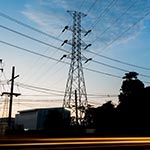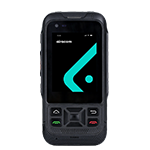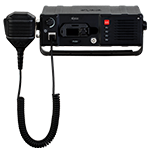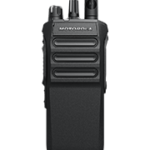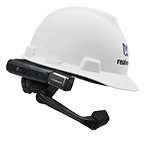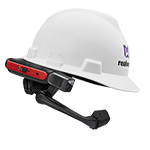Airacom Limited’s Anti-Slavery and Human Trafficking Policy
Introduction
Airacom Limited is committed to conducting business with the highest ethical standards and respecting human rights throughout its operations and supply chain. This Anti-Slavery and Human Trafficking Policy (“Policy”) outlines our zero-tolerance stance on slavery, forced labour, human trafficking, and all forms of modern slavery.
1.0 Purpose of the Policy
Airacom Limited is committed to conducting business with the highest ethical standards and respecting human rights throughout its operations and global supply chain. This Anti-Slavery and Human Trafficking Policy (“Policy”) outlines our zero-tolerance stance on slavery, forced labour, human trafficking, and all forms of modern slavery (“Exploitative Practices”).
Our core purpose in establishing this Policy is to:
(a) Prevent: Proactively identify and mitigate risks of Exploitative Practices within our operations and those of our suppliers and business partners.
(b) Protect: Safeguard all individuals involved in our business activities from potential exploitation and promote their well-being.
(c) Promote: Transparency and accountability regarding our efforts to combat Exploitative Practices throughout our supply chain.
(d) Comply: Uphold all applicable laws and regulations related to preventing and eradicating Exploitative Practices.
1.1 Our Commitment to Combating Slavery and Human Trafficking
At Airacom Limited, we understand the gravity of slavery and human trafficking and believe every person deserves to be treated with dignity and respect. We are unwavering in our commitment to eradicating these injustices from our operations and beyond. Our commitment manifests in tangible actions:
(a) Embedding ethical principles: We weave respect for human rights into the fabric of our company culture, ensuring it guides every decision and action.
(b) Proactive vigilance: We actively seek out and address potential risks of exploitation in our supply chain, employing stringent due diligence practices.
(c) Collaboration for impact: We believe in collective action and actively partner with stakeholders, advocacy groups, and regulatory bodies to strengthen the fight against modern slavery.
(d) Empowering awareness: We equip our employees, suppliers, and partners with the knowledge and resources to identify and report suspected exploitation.
(e) Continuous improvement: We are dedicated to evolving our strategies and practices, constantly learning and adapting to stay ahead of emerging threats.
Our commitment is not simply a policy on paper; it’s a driving force behind our operations and partnerships. We strive to be a leader in combating exploitation and uphold the highest ethical standards throughout our global reach.
This dedication reflects our core values of integrity, accountability, and inclusivity, ensuring that every individual’s well-being is valued and protected.
1.3 Definitions
To ensure clarity and consistency in understanding and application, this Policy defines key terms related to slavery, human trafficking, and other relevant concepts:
(a) Slavery: The status or condition of a person over whom any or all of the powers attaching to the right of ownership are exercised, including the exercise of such power in the course of trafficking in persons, in particular women and children.
(b) Forced Labor: All work or service which is exacted from any person under the menace of any penalty and for which the person has not offered himself or herself voluntarily.
(c) Human Trafficking: The recruitment, transportation, transfer, harbouring, or receipt of persons, using the threat or use of force or other forms of coercion, abduction, fraud, deception, abuse of power, or a position of vulnerability or of the giving or receiving of payments or benefits to achieve the consent of a person having control over another person, for exploitation. Exploitation shall include, at a minimum, the exploitation of the prostitution of others or other forms of sexual exploitation, forced labour or services, slavery or practices similar to slavery, servitude, or the removal of organs.
(d) Supply Chain: The network of individuals and organizations involved in the different processes and activities that produce and deliver a product or service, from sourcing raw materials to the final customer.
(e) Exploitative Practices: Any practices that involve slavery, forced labour, human trafficking, or other forms of modern slavery, as defined in this Policy.
(f) Due Diligence: Identifying, assessing, and managing potential risks of Exploitative Practices in business operations and supply chains.
(g) Whistleblowing: The reporting of suspected wrongdoing or illegal activity within an organization, often by employees or other insiders.
(h) Remediation: Actions taken to address and correct identified instances of Exploitative Practices, including supporting victims and ensuring that responsible parties are held accountable.
(i) Transparency: The open and honest communication of information about policies, practices, and performance related to anti-slavery and human trafficking efforts.
(j) Accountability: The acceptance of responsibility for actions and outcomes and the willingness to be answerable to stakeholders for progress in combating Exploitative Practices.
(k) Continuous Improvement: The ongoing process of reviewing, evaluating, and enhancing policies, practices, and performance to achieve better results in preventing and addressing Exploitative Practices.
2.0 Scope of Application
This Anti-Slavery and Human Trafficking Policy applies to everyone across Airacom Limited’s global operations, from employees in every role and location to those working with us as contractors, suppliers, partners, or intermediaries. It encompasses every part of our business, from the sourcing of materials to the delivery of services, ensuring that our commitment to ethical practices permeates every aspect of our work. With no individual or activity within our sphere of influence exempt, we aim to set a consistent standard for combating exploitation and promoting human rights throughout our supply chain and beyond.
2.1 Individuals Covered by the Policy
This section of the Anti-Slavery and Human Trafficking Policy outlines who and what the policy applies to, ensuring its comprehensive reach and effectiveness.
(a) Individuals Covered by the Policy: All Employees: Regardless of employment type, position, or location, every Airacom Limited employee is subject to the policy’s provisions. Contractors and Temporary Workers: Individuals engaged through third-party agencies or providers to perform services for Airacom Limited are also included. Suppliers and Business Partners: All companies and individuals supplying goods, services, or resources to Airacom Limited, as well as their employees and agents, are within the policy’s scope. Agents and Intermediaries: Third-party entities acting on behalf of Airacom Limited are similarly bound by the policy’s requirements.
(b) Business Activities Covered by the Policy: Procurement: The sourcing of materials, products, and services falls under the policy’s purview. Manufacturing and Production: Activities related to the creation of goods and services are included. Logistics and Transportation: The movement of goods and people within Airacom Limited’s operations is also covered. Distribution and Sales: The delivery of goods and services to customers is subject to the policy’s guidelines. Administrative and Support Services: All internal functions that support business operations are encompassed by the policy.
(c) Geographic Scope of the Policy: Global Reach: The policy extends to all of Airacom Limited’s operations and supply chains worldwide, ensuring consistent standards and practices across all regions.
2.2 Business Activities Covered by the Policy
This specific information clarifies the diverse range of activities covered by the Policy, ensuring every aspect of Airacom Limited’s operations comes under scrutiny and adheres to its commitment to ethical and responsible practices. If you have any further questions about specific activities or require additional details, please ask.
Procurement:
Sourcing of raw materials, components, and finished goods from all suppliers, regardless of industry or location.
Conduct due diligence on potential suppliers to assess their risk of using exploitative practices.
Incorporating anti-slavery and human trafficking clauses into supplier contracts.
Monitoring supplier compliance through audits and assessments.
Manufacturing and Production:
All activities involved in creating goods and services, including raw material processing, assembly, packaging, and quality control.
Ensuring safe and fair working conditions for all employees directly employed by Airacom Limited and those employed by contractors or subcontractors.
Implementing and enforcing strict policies against forced labour, overtime abuse, and discrimination in the workplace.
Regularly monitoring working conditions through factory inspections and employee feedback mechanisms.
Logistics and Transportation:
Transportation of goods, materials, and finished products, both within Airacom Limited’s facilities and throughout the supply chain.
Partnering with ethical transportation providers committed to upholding anti-slavery and human trafficking standards.
Ensuring proper documentation and legal compliance during all transportation activities.
Distribution and Sales:
Delivery of goods and services to customers through various channels, including direct sales, retail partnerships, and online platforms.
Implementing training programs for sales personnel to identify and report potential indicators of Exploitative Practices within customer supply chains.
Collaborating with customers to promote ethical sourcing practices and responsible consumer choices.
Administrative and Support Services:
All internal functions that support Airacom Limited’s operations, such as Human Resources, Finance, IT, Legal, and Marketing.
Ensuring that procurement practices for office supplies, services, and other administrative needs align with the Policy’s principles.
Raising awareness among all staff about the importance of combating Exploitative Practices within the broader business context.
2.3 Geographic Scope of the Policy
Airacom Limited’s Anti-Slavery and Human Trafficking Policy operates with a global reach, meaning it applies to all of our operations and supply chains, regardless of location. Here’s how this principle translates into practice:
(a) Consistency across Borders: We maintain the same high ethical standards and anti-slavery commitments in every country where we operate or source materials. This ensures a level playing field for all stakeholders and prevents geographical disparities in our efforts.
(b) Adapting to Local Legislation: While adhering to our core principles, we adapt our implementation strategies to comply with specific legal requirements and cultural sensitivities in different regions. We collaborate with local experts and stakeholders to ensure our approach is effective and appropriate in each context.
(c) Supply Chain Transparency: We actively map and monitor our global supply chains to identify potential risks and ensure transparency throughout the network. This allows us to address issues regardless of geographic distance and hold all participants accountable for adhering to the Policy’s standards.
(d) Collaboration and Advocacy: We engage with international organisations, government agencies, NGOs, and other stakeholders to share best practices, exchange information, and advocate for stronger anti-slavery legislation and enforcement mechanisms globally.
3.0 Policy Statement
Airacom Limited is unwavering in its commitment to conducting business with the highest ethical standards and upholding the dignity and well-being of all individuals throughout its operations and global supply chain. This absolute commitment is embodied in the following core principles:
(a) Zero Tolerance for Exploitative Practices: Airacom Limited has a zero-tolerance policy for slavery, forced labour, human trafficking, and all forms of modern slavery (collectively referred to as “Exploitative Practices”). We are dedicated to creating and maintaining a business environment free from exploitation and harmful labour practices.
(b) Compliance with Applicable Laws and Regulations: We uphold all applicable laws and regulations related to the prevention and eradication of Exploitative Practices in every country where we operate or source materials. We actively monitor and adapt our practices to stay current with evolving legal frameworks and best practices.
(c) Proactive Due Diligence: We are committed to conducting thorough due diligence on all our suppliers and business partners to assess their potential risks of engaging in Exploitative Practices. This due diligence includes reviewing their policies, processes, and practices and conducting audits and assessments as necessary.
(d) Transparency and Accountability: We believe transparency and accountability are key drivers of progress in combating Exploitative Practices. We are committed to communicating our efforts openly and honestly to all stakeholders, including employees, suppliers, customers, and the public. We hold ourselves and our partners accountable for upholding the principles outlined in this Policy and achieving meaningful results.
(e) Continuous Improvement: We recognise that the fight against modern slavery is ongoing. We are committed to continuous improvement by regularly reviewing and updating our policies, practices, and monitoring systems to ensure we effectively prevent, identify, and address any potential risks of Exploitative Practices within our operations and supply chain.
3.1 Zero Tolerance for Slavery and Human Trafficking
Unwavering Commitment to Ethical Practices: Airacom Limited operates with an unwavering commitment to upholding the highest ethical standards and fostering a work environment free from exploitation. We have zero tolerance for slavery, forced labour, human trafficking, and all other harmful labour practices in our operations and throughout our global supply chain. This means:
(a) Absolute Prohibition: Engaging in, condoning, or benefiting from any form of Exploitative Practice is strictly prohibited for all Airacom Limited employees, suppliers, partners, and anyone associated with our business.
(b) Proactive Prevention: We actively implement preventative measures to identify and mitigate potential risks of Exploitative Practices within our operations and supply chain.
(c) Swift and Decisive Action: Any suspected instances of Exploitative Practices will be thoroughly investigated, and swift and decisive action will be taken to address them. This includes terminating relationships with non-compliant partners and reporting serious violations to relevant authorities.
(d) Continuous Vigilance: We maintain a culture of awareness and vigilance throughout our organization, empowering everyone to identify and report potential concerns.
Airacom Limited takes its responsibility to uphold human rights and prevent exploitation seriously. We believe that every individual deserves to work in a safe and dignified environment, and we are committed to playing our part in eradicating Exploitative Practices from our business and beyond.
3.2 Compiance with Applicable Laws and Regulations
Upholding Legal and Ethical Standards: Airacom Limited is committed to operating within the framework of applicable laws and regulations in every jurisdiction where we conduct business. We recognise that legal compliance is not only a matter of corporate responsibility but also a crucial component of our efforts to combat slavery and human trafficking effectively.
(a) Thorough Knowledge: We maintain a comprehensive understanding of all relevant laws and regulations related to slavery, forced labour, human trafficking, and other labour rights issues in each country where we operate or source materials.
(b) Active Monitoring: We actively monitor changes in legal frameworks and best practices to ensure our policies and procedures remain aligned with current requirements.
(c) Compliance Integration: We embed legal compliance into our daily operations, decision-making processes, and supplier relationships.
(d) Due Diligence: We conduct thorough due diligence on potential suppliers and partners to assess their compliance with relevant laws and regulations.
(e) Seeking Guidance: We engage with legal experts and industry bodies to stay informed and seek guidance on complex legal issues.
(f) Reporting and Transparency: We report any suspected violations of laws or regulations to relevant authorities and maintain transparency in our compliance efforts.
By prioritising legal and ethical compliance, Airacom Limited safeguards the rights of individuals, promotes responsible business practices, and contributes to a more just and equitable global marketplace. We believe that upholding the law is not merely a formality but a fundamental pillar in our fight against exploitation and a testament to our commitment to ethical business conduct.
4.0 Key Commitments
Transforming Commitments into Action: Airacom Limited’s Anti-Slavery and Human Trafficking Policy is not merely a statement of principles but a roadmap for concrete actions. We have identified key commitments that translate our unwavering stance against exploitation into tangible measures, ensuring meaningful progress in upholding ethical practices throughout our business and supply chain.
(a) Due Diligence:
Vigilant Screening: We implement risk-based screening processes to identify suppliers with potential risks of Exploitative Practices, proactively addressing concerns before entering into partnerships.
Rigorous Assessments: We conduct regular audits and assessments of high-risk suppliers to verify their compliance with our Policy and identify any areas for improvement.
Contractual Assurance: We include clear clauses in supplier contracts that explicitly prohibit Exploitative Practices and mandate adherence to our Policy, ensuring accountability throughout our supply chain.
(b) Empowering Awareness:
Comprehensive Training: We provide training to all employees, across all levels, on how to identify, report, and prevent potential Exploitative Practices within their areas of work, fostering a culture of vigilance and ethical responsibility.
Supplier Guidance: We offer training and resources to suppliers to support their efforts in preventing and addressing Exploitative Practices within their own operations, promoting a collaborative approach to ethical supply chain management.
(c) Safeguarding Voices:
Accessible Reporting Channels: We establish and maintain confidential and accessible channels for all individuals, including employees, suppliers, and external stakeholders, to report suspected Exploitative Practices without fear of retaliation, ensuring that concerns are heard and acted upon.
Thorough Investigations: We promptly investigate all reported concerns with due diligence and take appropriate remedial action, prioritizing the protection of individuals and upholding our ethical standards.
Embracing Transprency:
Public Accountability: We publish an annual report detailing our efforts to combat Exploitative Practices within our supply chain, demonstrating transparency and accountability to our stakeholders and the wider public.
Meaningful Engagement: We actively engage with stakeholders, including employees, suppliers, customers, industry bodies, and advocacy groups, to share information, collaborate on best practices, and foster a collective commitment to ethical business practices.
4.1 Due Diligence
Airacom Limited recognises the crucial role of due diligence in our fight against slavery and human trafficking. We go beyond passive compliance and actively identify and mitigate potential risks of Exploitative Practices within our supply chain. Here’s how we translate our due diligence commitment into action:
(a) Vigilant Screening:
Risk-Based Approach: We utilize data analytics and external resources to assess potential risks associated with suppliers based on factors like country of origin, industry, and past performance. This allows us to prioritize high-risk suppliers for further scrutiny.
Negative Screening: We utilize databases and watchlists to exclude suppliers implicated in past instances of Exploitative Practices or lacking clear information on their labour practices.
Positive Screening: We actively seek suppliers demonstrably committed to ethical sourcing and upholding high labour standards.
(b) Rigorous Assessments:
On-site Audits: We conduct regular audits of high-risk suppliers to assess their working conditions, labour practices, and adherence to our Policy. This includes interviewing employees, reviewing documentation, and inspecting facilities.
Supplier Questionnaires: We utilize detailed questionnaires to gather information on suppliers’ policies, procedures, and risk management strategies related to Exploitative Practices.
Third-Party Verification: We engage independent auditors or accredited organisations to conduct in-depth assessments of high-risk suppliers, ensuring objectivity and comprehensive evaluation.
(c) Contractual Assurance:
Explicit Prohibitions: We include clear clauses in supplier contracts explicitly prohibiting all forms of Exploitative Practices. These clauses also outline the consequences of non-compliance, including potential contract termination.
Transparency Requirements: We require suppliers to provide transparent information on their own supply chains and labour practices, allowing us to gain deeper insights and identify potential risks further down the chain.
Right to Audit: We reserve the right to conduct unannounced audits or inspections of supplier facilities to ensure ongoing compliance with our Policy and contractual obligations.
4.2 Transparency and Reporting
Airacom Limited values transparency and accountability as cornerstones of our commitment to combating Exploitative Practices. We believe in open communication and empowering individuals to raise concerns, share information, and contribute to positive change. This section outlines how we translate these values into concrete actions:
(a) Accessible Reporting Channels:
Multiple Avenues: We provide diverse channels for employees, suppliers, and external stakeholders to report suspected Exploitative Practices without fear of retaliation. This includes confidential hotlines, online reporting forms, dedicated email addresses, and anonymous reporting options.
Employee Training: We train all employees on the importance of reporting and identifying and reporting potential concerns, fostering a culture of awareness and responsibility.
Supplier Communication: We establish clear communication channels with suppliers and ensure they understand their role in reporting potential issues within their operations.
(b) Thorough Investigations:
Prompt Action: We promptly investigate all reported concerns with impartiality and due diligence. This involves gathering evidence, interviewing relevant individuals, and conducting fact-checking assessments.
Confidentiality: We maintain the confidentiality of information and protect the identity of individuals who report concerns.
Remedial Action: Based on the investigation findings, we take appropriate remedial action, including providing support to victims, addressing non-compliance with suppliers, and revising internal policies and procedures.
(c) Public Accountability:
Annual Reporting: We publish an annual report detailing our efforts to combat Exploitative Practices within our supply chain. This report includes information on risk assessments, audits conducted, reported concerns, and actions taken to address them.
Stakeholder Engagement: We actively engage with stakeholders, including employees, suppliers, customers, industry associations, and NGOs, to share information, discuss best practices, and collaborate on solutions to combat exploitation.
Accessibility of Information: We ensure information about our anti-slavery and human trafficking efforts is readily available and accessible to all stakeholders through our website, internal communications, and public reports.
4.3 Training and Awareness
Airacom Limited recognises that knowledge and awareness are vital weapons in the fight against slavery and human trafficking. We believe that equipping everyone with the necessary information and skills empowers them to identify potential risks, raise concerns, and contribute to building a more ethical supply chain. Here’s how we translate this principle into action:
(a) Comprehensive Training:
Employee Program: We provide all employees, regardless of level or role, with comprehensive training on slavery, forced labour, human trafficking, and other Exploitative Practices. This training covers identifying indicators, reporting procedures, and understanding our company’s commitment to ethical sourcing.
Supplier Engagement: We offer training and resources to suppliers on how to identify and address Exploitative Practices within their operations. This includes best practices for labour management, ethical sourcing, and building responsible supply chains.
Tailored Approach: We recognize that different roles require different levels of understanding. We tailor training programs to specific needs, ensuring everyone receives the appropriate knowledge and skills to make informed decisions and contribute effectively.
(b) Fostering a Culture of Vigilance:
Regular Communication: We maintain ongoing communication channels to keep employees and stakeholders informed about our anti-slavery and human trafficking efforts. This includes newsletters, intranet announcements, and awareness campaigns.
Encouraging Open Dialogue: We actively encourage employees and stakeholders to ask questions, raise concerns, and share ideas. We strive to foster a culture where open dialogue and reporting are the norm, not the exception.
Incentivising Engagement: We recognise and reward employees who actively participate in training programs, report potential concerns and contribute to our efforts to combat Exploitative Practices.
(c) Continuous Improvement:
Reviewing Materials: We regularly review and update our training materials and awareness campaigns to stay current with evolving trends and best practices in the fight against Exploitative Practices.
Seeking Feedback: We actively seek feedback from employees and stakeholders on our training programs and awareness efforts to ensure they are effective and meet the needs of everyone involved.
Adapting to Challenges: We remain adaptable and responsive to new challenges and emerging risks. We continuously refine our training and awareness programs to address evolving threats and ensure we remain vigilant in our fight against exploitation.
4.4 Whistleblowing and Reporting Mechanisms
Airacom Limited recognises the crucial role of whistleblowing and reporting mechanisms in safeguarding individuals and ensuring ethical practices throughout our operations and supply chain. We provide accessible and secure channels for anyone to report suspected Exploitative Practices without fear of retaliation, allowing us to address concerns promptly and effectively. Here’s how we ensure safe and empowered reporting:
(a) Accessible Channels:
Variety of options: We offer multiple reporting channels to cater to individual preferences and comfort levels. This includes confidential hotlines, online reporting forms, dedicated email addresses, and anonymous reporting options, accessible through our website, internal communication platforms, and physical locations.
Global reach: We ensure reporting channels are accessible to all individuals across our global operations and supply chain, regardless of location or language barriers. Multilingual support and localized hotlines are available where needed.
Easy to use: We design reporting platforms to be user-friendly and intuitive, encouraging individuals to come forward with concerns regardless of their technical expertise.
(b) Confidentiality and Protection:
Zero-tolerance for retaliation: Airacom Limited has a strict zero-tolerance policy for retaliation against anyone who reports suspected Exploitative Practices in good faith. We actively protect the identity and well-being of individuals who raise concerns.
Confidentiality measures: We implement stringent confidentiality measures to protect the anonymity of reporters and any sensitive information disclosed. Data is securely stored and accessed only by authorized personnel for investigation purposes.
Support and guidance: We provide ongoing support and guidance to individuals who report concerns, ensuring they are informed of the investigation process and understand their rights and options throughout the process.
(c) **Thorough Investigation and **
Prompt action: We promptly investigate all reported concerns with impartiality and due diligence. Our investigations follow established protocols and involve gathering evidence, interviewing relevant individuals, and conducting fact-checking assessments.
Remedial action: We take appropriate remedial action to address the reported concerns based on the investigation findings. This may include supporting victims, addressing non-compliance with suppliers, revising internal policies and procedures, and taking legal action if necessary.
Communication and feedback: We keep reporters informed of the investigation’s progress and outcomes in a timely and respectful manner. We also welcome feedback on our processes to ensure continuous improvement in the effectiveness and accessibility of our reporting mechanisms.
4.5 Remediation and Non-Retaliation
Airacom Limited recognises that combating slavery and human trafficking requires not only prevention but also effective remediation for individuals impacted by Exploitative Practices and ensuring non-retaliation for those who raise concerns. We are committed to addressing identified issues with swiftness, fairness, and compassion while safeguarding those who speak up against injustice.
(a) Remediation Measures:
Support for Victims: We prioritise the well-being of individuals identified as victims of Exploitative Practices by providing access to appropriate support services, which may include medical care, psychological counseling, legal assistance, and victim compensation programs. We collaborate with relevant NGOs and government agencies to ensure comprehensive and effective support.
Holding Perpetrators Accountable: We take appropriate action against individuals or entities found responsible for engaging in or condoning Exploitative Practices. This may include contractual termination with non-compliant suppliers, reporting violations to relevant authorities, and pursuing legal action where necessary.
Systemic Improvements: We analyse the root causes of identified instances of exploitation and implement corrective measures to prevent similar occurrences in the future. This may involve revising internal policies and procedures, strengthening supplier due diligence practices, and promoting ethical sourcing initiatives throughout our supply chain.
(b) Non-Retaliation Policy:
Zero-tolerance: Airacom Limited has a strict zero-tolerance policy for retaliation against any individual who reports suspected Exploitative Practices in good faith. We actively protect the identity and well-being of individuals who raise concerns, regardless of the outcome of the investigation.
Confidentiality: We ensure that information related to whistleblowers remains confidential and that individuals are not subjected to negative consequences for reporting concerns. This includes protection from job-related repercussions, discrimination, or harassment.
Safe reporting channels: We provide secure and accessible reporting channels that protect whistleblowers from identification and potential retaliation. These channels are independent of managers and supervisors to offer greater confidence and encourage open communication.
Training and awareness: We regularly train employees and suppliers on our non-retaliation policy and the importance of protecting whistleblowers. This fosters a culture of respect and encourages individuals to come forward with concerns without fear of reprisal.
(c) By upholding these principles, Airacom Limited demonstrates its commitment to justice and fairness. We believe that effective remediation for victims and unwavering protection for whistleblowers are crucial for promoting ethical practices, fostering open communication, and building a more responsible and sustainable business environment.
5.0 Supply Chain Management
Airacom Limited recognises that combating slavery and human trafficking extends beyond our operations. We are committed to fostering ethical partnerships and implementing robust supply chain management practices that uphold our values and prevent exploitation throughout our network. Here’s how we translate this commitment into action:
(a) Supplier Selection and Onboarding:
Rigorous Criteria: We establish strict selection criteria for new suppliers, prioritizing those demonstrably committed to ethical sourcing and upholding high labour standards. This includes reviewing their policies, auditing their practices, and assessing their risk of engaging in Exploitative Practices.
Contractual Commitments: We incorporate clear clauses into supplier contracts outlining our expectations around ethical sourcing, labour rights, and adherence to our Anti-Slavery and Human Trafficking Policy. Non-compliance can lead to contractual termination.
Training and Collaboration: We offer training and resources to new suppliers to help them understand and implement our Policy and best practices for ethical sourcing. This promotes collaborative efforts towards building a more responsible supply chain.
(b) Supplier Monitoring and Evaluation:
Risk-Based Approach: We prioritize monitoring and evaluation based on identified risks within our supply chain. High-risk suppliers are subject to more frequent audits and assessments, while low-risk ones may undergo less intensive monitoring procedures.
Regular Audits and Assessments: We conduct regular audits and assessments of our suppliers independently and through third-party organisations. These audits evaluate their labour practices, working conditions, and adherence to our Policy and contractual obligations.
Transparency and Communication: We maintain open communication with suppliers and share audit findings and recommendations for improvement. This collaborative approach encourages continuous progress towards ethical sourcing practices.
(c) Capacity Building and Support:
Knowledge Sharing: We share best practices and resources with our suppliers to help them strengthen their own capacities for ethical sourcing and preventing Exploitative Practices. This may include training materials, online tools, and access to expert advice.
Collaborative Initiatives: We participate in industry-wide initiatives and partnerships focused on combating slavery and human trafficking within specific supply chains. This allows us to share knowledge, resources, and best practices with other companies and stakeholders.
Continuous Improvement: We are committed to continuous improvement in our supply chain management practices. We regularly review and update our policies, procedures, and monitoring systems to ensure we stay current with evolving risks and best practices.
5.1 Supplier Code of Conduct
Airacom Limited’s Supplier Code of Conduct serves as a cornerstone of our commitment to ethical sourcing and responsible supply chain management. It outlines the fundamental principles and expectations that all our suppliers must uphold to ensure fair labour practices, respect for human rights, and adherence to our Anti-Slavery and Human Trafficking Policy. Here’s a breakdown of key elements within the Code:
(a) Zero Tolerance for Exploitative Practices:
Suppliers must strictly prohibit any form of slavery, forced labour, human trafficking, or child labour within their operations and supply chains.
Suppliers must ensure fair recruitment practices, freedom of movement, and the right to terminate employment without penalty for workers.
Suppliers must provide safe and healthy working conditions, including adequate wages, reasonable working hours, and access to essential services.
Suppliers must respect the rights of workers to freedom of association, collective bargaining, and non-discrimination.
(b) Compliance with Laws and Regulations:
Suppliers must comply with all applicable laws and regulations related to labour, employment, health and safety, and environmental protection in the countries where they operate.
Suppliers must maintain proper documentation of employment contracts, working hours, wages, and benefits for all workers.
(c) Transparency and Reporting:
Suppliers must provide accurate and transparent information about their labour practices, working conditions, and supply chains to Airacom Limited upon request.
Suppliers must promptly report any suspected instances of Exploitative Practices within their operations or supply chains.
Suppliers must cooperate fully with Airacom Limited’s audits and assessments to ensure compliance with the Code.
(d) Continuous Improvement:
Suppliers must demonstrate a commitment to continuous improvement in their labour practices and ethical sourcing efforts.
Suppliers must participate in training and capacity-building initiatives to strengthen their understanding of human rights and responsible supply chain management.
(e) Consequences of Non-Compliance:
Airacom Limited reserves the right to terminate contracts with suppliers who fail to comply with the Code or engage in Exploitative Practices.
Airacom Limited may pursue legal action against suppliers who violate applicable laws or regulations.
(f) Collaborative Approach:
Airacom Limited recognises that achieving a truly ethical supply chain requires collaboration and shared responsibility.
We are committed to working with our suppliers to provide support, training, and resources to help them meet the standards of the Code.
We believe that through open communication, transparency, and collective effort, we can build a more sustainable and equitable global supply chain that respects human rights and upholds ethical business practices.
5.2 Supplier Due Diligence
Airacom Limited recognises that proactive due diligence is essential for identifying and mitigating potential risks of Exploitative Practices within our supply chain. We go beyond passive compliance and actively assess potential risks associated with our suppliers to ensure ethical sourcing and responsible labour practices throughout our network.
(a) Risk Assessment:
We utilise data analytics and external resources to assess potential risks associated with suppliers based on factors like country of origin, industry, past performance, and media reports of labour issues.
This allows us to prioritise high-risk suppliers for further scrutiny and focus our resources on areas where the potential for exploitation is greatest.
(b) Negative Screening:
We utilise databases and watchlists to exclude suppliers implicated in past instances of Exploitative Practices or lacking clear information on their labour practices.
This helps us avoid associating with known offenders and prioritise suppliers with a demonstrably clean track record.
(c) Positive Screening:
We actively seek suppliers demonstrably committed to ethical sourcing and upholding high labour standards.
This involves looking for certifications, awards, or memberships in organisations promoting responsible sourcing practices.
(d) On-site Audits:
We conduct regular audits of high-risk suppliers to directly assess their working conditions, labour practices, and adherence to our Policy and the Supplier Code of Conduct.
This involves interviewing employees, reviewing documentation, and inspecting facilities to identify any potential red flags.
(e) Supplier Questionnaires:
We utilise detailed questionnaires to gather information on suppliers’ policies, procedures, and risk management strategies related to Exploitative Practices.
This provides us with a comprehensive understanding of their internal efforts to prevent and address exploitation within their own operations.
(f) Third-Party Verification:
We engage independent auditors or accredited organisations to conduct in-depth assessments of high-risk suppliers, ensuring objectivity and a thorough evaluation of their labour practices.
This provides an additional layer of scrutiny and helps us identify issues that may have been missed during internal audits.
(g) Contractual Assurance:
We include clear clauses in supplier contracts explicitly prohibiting all forms of Exploitative Practices. These clauses also outline the consequences of non-compliance, including potential contract termination.
This formalises our expectations and ensures legal accountability for suppliers who fail to uphold our standards.
(h) Transparency Requirements:
We require suppliers to provide transparent information on their own supply chains and labour practices, allowing us to gain deeper insights and identify potential risks further down the chain.
This promotes collaborative efforts and shared responsibility for ethical sourcing throughout the entire network.
(i) Right to Audit:
We reserve the right to conduct unannounced audits or inspections of supplier facilities to ensure ongoing compliance with our Policy and contractual obligations.
This element of surprise helps us to detect any attempts to conceal non-compliance and ensures continued vigilance throughout the partnership.
5.3 Supplier Audits Assessment
Within Airacom Limited’s commitment to ethical sourcing and responsible supply chain management, supplier audits play a crucial role. These assessments evaluate our suppliers’ adherence to our Anti-Slavery and Human Trafficking Policy, the Supplier Code of Conduct, and the principles of ethical labor practices. Here’s how we conduct and utilize supplier audits for maximum impact:
(a) Types of Audits:
Compliance Audits: These in-depth assessments thoroughly evaluate a supplier’s compliance with our Policy, Code of Conduct, and contractual obligations. They involve inspecting documentation, interviewing employees, and observing working conditions to identify any discrepancies or areas for improvement.
Risk-Based Audits: We prioritize high-risk suppliers based on factors like geographic location, industry, past performance, and identified concerns for more frequent and stringent audits. This allows us to allocate resources effectively and focus on areas with the greatest potential for exploitation.
Joint Audits: We actively collaborate with relevant NGOs, industry associations, and other stakeholders to conduct joint audits of shared suppliers. This fosters collective action, promotes best practices, and strengthens the effectiveness of our efforts.
(b) Audit Methodology:
Independent Auditors: We engage qualified and independent auditors with expertise in labour rights, ethical sourcing, and social compliance to conduct audits. This ensures objectivity and impartiality in the assessment process.
Pre-Audit Planning: We carefully plan each audit, defining the scope, objectives, and methodology based on the supplier’s specific profile and identified risks. This ensures targeted assessments that address relevant concerns effectively.
Evidence-Based Approach: Auditors gather diverse evidence through document review, employee interviews, facility inspections, and observations of working practices. This multi-faceted approach provides a comprehensive picture of the supplier’s operations and potential issues.
Confidentiality and Fairness: We maintain the confidentiality of information collected during audits and treat all involved stakeholders with fairness and respect.
(c) Post-Audit Action:
Audit Reports: Detailed reports are produced summarizing the findings and recommendations for improvement. These reports are shared with the supplier and relevant stakeholders within Airacom Limited.
Corrective Action Plans: Suppliers are required to develop comprehensive corrective action plans addressing the identified non-compliance issues. These plans outline specific actions, timelines, and responsible individuals for implementing necessary improvements.
**Monitoring and ** We monitor the implementation of corrective action plans through follow-up visits, communication with the supplier, and reviews of progress reports. This ensures lasting change and sustained compliance with our standards.
(d) Transparency and Accountability:
We engage in dialogue with stakeholders, including employees, investors, and NGOs, to share information about our audit activities and progress in combating exploitation within our supply chain.
By actively conducting and utilising supplier audits, Airacom Limited proactively assesses and addresses potential risks of exploitation throughout our network. We believe that rigorous assessments, followed by concrete action and collaborative engagement, are key to achieving lasting progress in promoting ethical sourcing and building a more sustainable and responsible global marketplace.
5.4 Collaboration with Suppliers
Airacom Limited recognizes that achieving a truly ethical and sustainable supply chain requires collaboration and shared responsibility. We go beyond simply auditing and assessing our suppliers; we actively engage with them to build strong partnerships, share best practices, and work together to address challenges related to ethical sourcing and preventing exploitation. Here’s how we foster collaborative efforts with our suppliers:
(a) Joint Training and Capacity Building:
We offer training programs and workshops for our suppliers on our Anti-Slavery and Human Trafficking Policy, the Supplier Code of Conduct, and best practices for ethical sourcing and labour rights compliance.
We collaborate with NGOs and industry experts to develop and deliver these training programs, ensuring access to diverse knowledge and expertise.
We provide resources and tools to support our suppliers in implementing responsible sourcing practices and strengthening their own internal capacity for preventing exploitation.
(b) Knowledge Sharing and Open Communication:
We maintain open communication channels with our suppliers, encouraging them to raise concerns, share challenges, and seek guidance or support related to ethical sourcing and labour practices.
We regularly share best practices, case studies, and success stories within our network to inspire and motivate suppliers to integrate ethical practices into their operations further.
We host industry forums and roundtable discussions where suppliers can connect, share experiences, and collaborate on solutions to address common challenges in specific sectors or regions.
(c) Joint Initiatives and Partnerships:
We participate in industry-wide initiatives and partnerships focused on combating slavery and human trafficking within specific supply chains. This allows us to pool resources, expertise, and influence to drive larger systemic change.
We collaborate with NGOs and government agencies on pilot projects and research initiatives to develop and test innovative solutions for addressing emerging risks and challenges related to exploitation in specific sectors or geographies.
We work together with our suppliers to implement collaborative projects within their communities, promoting respect for human rights, improving working conditions, and empowering workers through awareness training and skills development.
(d) Recognition and Incentives:
We recognise and reward suppliers who demonstrate exemplary commitment to ethical sourcing and continuous improvement in their labour practices. This may include public recognition, awards, or preferential contract terms.
We incentivise our suppliers to participate in joint initiatives and capacity-building programs, providing financial or logistical support to facilitate their engagement.
We promote transparency throughout our supply chain by highlighting partnerships and joint projects in our sustainability reports and public communications.
6.0 Monitoring and Review
At Airacom Limited, we are committed to continuous improvement in our efforts to combat slavery and human trafficking within our operations and supply chain. We recognise that our work is never truly finished, and ongoing monitoring and review are essential for ensuring the effectiveness of our policies, practices, and partnerships. Here’s how we approach this crucial aspect of our Anti-Slavery and Human Trafficking Policy:
(a) Monitoring Systems:
Internal Tracking: We utilise internal platforms and systems to track data, analyse trends, and monitor progress across different departments and initiatives related to combating exploitation.
(b) Regular Reviews:
Management Review: Our senior management team regularly reviews the findings of our monitoring systems, evaluates the overall effectiveness of our anti-exploitation efforts, and identifies areas for improvement.
Independent Audits: We engage independent auditors to conduct periodic external audits of our anti-slavery and human trafficking efforts. These audits provide an objective assessment of our compliance, identify potential gaps or weaknesses, and offer recommendations for further strengthening our systems.
Stakeholder Engagement: We actively engage with stakeholders, including employees, suppliers, NGOs, and investors, to gather feedback on our performance, share best practices, and discuss emerging challenges in the fight against exploitation.
(c) Continuous Improvement:
Action Plans: Based on the findings of our monitoring and review processes, we develop and implement action plans to address identified gaps, improve performance, and strengthen our overall approach to combating exploitation.
Policy Updates: We regularly review and update our Anti-Slavery and Human Trafficking Policy and related procedures to reflect evolving best practices, address new risks, and incorporate feedback from stakeholders.
6.1 Regular Reviews and Updates
A core commitment of Airacom Limited’s Anti-Slavery and Human Trafficking Policy is ensuring its continued relevance and effectiveness. We acknowledge that the landscape of modern slavery and human trafficking is constantly evolving, and our policy must adapt to stay ahead of emerging risks and best practices. Therefore, we implement a robust regime of regular reviews and updates to maintain the integrity and efficacy of our approach:
(a) Review Frequency and Scope:
Annual Comprehensive Review: We conduct a comprehensive review of our Policy at least once every year. This review involves examining all aspects of the document, including its alignment with current legislation, industry best practices, and stakeholder feedback.
Periodic Assessments: Additionally, we conduct targeted assessments of specific elements within the Policy throughout the year. These assessments might focus on aspects like due diligence procedures, reporting mechanisms, supplier engagement strategies, or training programs.
Risk-Based Approach: We prioritise these assessments based on identified risks within our supply chain or emerging trends in the fight against exploitation.
(b) Review Process:
Internal Expertise: Our internal team, comprising representatives from legal, procurement, human resources, and sustainability departments, spearheads the review process.
External Input: We actively seek the perspectives of external stakeholders, including NGOs, industry experts, and independent auditors, to enrich our review and update process.
Data-Driven Insights: We utilise data collected through our monitoring systems and performance indicators to inform the review and identify areas for improvement.
(c) Implementation of Updates:
Policy Revisions: Based on the findings of the review process, we revise and update the Anti-Slavery and Human Trafficking Policy as needed.
Communication and Training: We effectively communicate any updates to the Policy to all relevant stakeholders, including employees, suppliers, and partners.
Implementation Support: We provide training and resources to ensure seamless integration of updated procedures and expectations into our operations and partnerships.
(d) Transparency and Accountability:
Publicly Available Policy: We maintain a publicly accessible version of our Anti-Slavery and Human Trafficking Policy on our website to demonstrate transparency and commitment to responsible sourcing.
6.2 Monitoring of Compliance
At Airacom Limited, we are unwavering in our commitment to upholding the principles outlined in our Anti-Slavery and Human Trafficking Policy. However, we recognise that mere declaration is not enough. To ensure our commitment translates into tangible action and effective prevention, we employ a rigorous monitoring system to assess and verify compliance throughout our operations and supply chain. Here’s how we vigilantly track our progress and address any gaps between intent and execution:
(a) Monitoring Scope: Internal Operations: We monitor our own business practices, from recruitment and employment policies to procurement procedures and supplier engagement strategies, to ensure adherence to our Policy and relevant laws.
(b) Supply Chain: We extend our monitoring reach beyond our own walls, focusing on high-risk suppliers through various methods like audits, assessments, and collaborative initiatives.
(c) Reporting Channels: We actively monitor the effectiveness of our whistleblowing and reporting mechanisms, analysing trends in reported concerns, investigating all allegations promptly and fairly, and taking appropriate remedial action when necessary.
(d) Monitoring Methods: Data Analysis: We utilise data collected through supplier audits, training programs, internal tracking systems, and reporting channels to identify potential trends, risks, and areas for improvement.
(e) Regular Reporting: We implement internal reporting procedures to ensure relevant departments and management teams receive regular updates on compliance, identify non-conformities, and progress towards addressing them.
(f) Independent Audits: We engage independent auditors to conduct periodic assessments of our compliance efforts, providing an objective evaluation of our systems and identifying areas for potential weakness or blind spots.
(g) Addressing Non-Compliance: Corrective Action Plans: In case of identified non-compliance, we develop and implement corrective action plans in collaboration with responsible departments or suppliers. These plans outline specific actions, timelines, and accountability measures to address the identified issues and prevent future occurrences.
(h) Continuous Improvement: We view non-compliance as an opportunity for improvement, analysing root causes, learning from mistakes, and adapting our processes and procedures to prevent similar issues in the future.
(i) Transparency and Accountability: We maintain transparency in our monitoring efforts by reporting on compliance progress in our annual sustainability reports and by engaging in open communication with stakeholders about identified challenges and implemented solutions.
(j) Continuous Vigilance: Employee Training: We regularly train our employees on the content of our Policy and their role in identifying and reporting potential risks of exploitation. This fosters a culture of awareness and shared responsibility within our organisation.
(k) Supplier Collaboration: We work with our suppliers to strengthen their own capacity for monitoring and compliance within their operations and throughout their own supply chains.
(l) External Engagement: We collaborate with NGOs, industry associations, and government agencies to stay informed about evolving best practices and share knowledge about effective monitoring methods in the fight against exploitation.
7.0 Communication and Reporting
Airacom Limited prioritises open communication and proactive reporting as cornerstones of our commitment to combating slavery and human trafficking. We provide accessible and secure channels for individuals to raise concerns, ensure prompt and fair investigation of reported issues, and maintain transparency through regular communication about our progress and challenges.
7.1 Internal Communication
Airacom Limited recognises that building a truly ethical and slavery-free supply chain requires active participation and awareness throughout our organisation. We believe that engaging and empowering our employees is crucial for identifying and addressing potential risks of exploitation at every level.
(a) Raising Awareness and Understanding: We regularly conduct training programs and workshops for employees on our Anti-Slavery and Human Trafficking Policy, the Supplier Code of Conduct, and best practices for responsible sourcing. These sessions raise awareness about the issue, provide practical guidance for identifying potential risks, and empower employees to report any concerns they may have.
(b) Multiple Communication Channels: We provide diverse and accessible channels for employees to raise concerns, ask questions, and seek clarification about our policies and procedures. This includes hotlines, online reporting platforms, confidential email addresses, and direct communication with designated managers or compliance officers.
(c) Open and Transparent Dialogue: We foster a culture of open communication where employees feel comfortable raising concerns without fear of reprisal. We ensure prompt and fair investigation of reported issues and provide timely feedback to employees on the outcome of their reports.
(d) Regular Updates and Information Sharing: We keep employees informed about our progress in combating slavery and human trafficking through regular newsletters, internal communications platforms, and annual reports. These updates share information about identified risks, implemented initiatives, and overall progress towards achieving our goals.
(e) Employee Engagement Initiatives: We actively engage employees in initiatives related to responsible sourcing and ethical practices. This may involve employee volunteering programs, awareness campaigns, or participation in workshops and training sessions alongside our suppliers.
7.2 External Communication
At Airacom Limited, we believe that transparency and collaboration are essential for effectively combating slavery and human trafficking. We actively engage with external stakeholders to share our efforts, learn from best practices, and build collective action towards a more ethical and sustainable future. Here’s how we approach external communication:
(a) Stakeholder Engagement:
Stakeholder Identification: We actively identify and engage with key stakeholders, including NGOs, industry associations, government agencies, investors, and consumers. We listen to their concerns, share our approach, and seek their perspectives on improving our efforts.
Dialogue and Collaboration: We participate in industry forums, roundtable discussions, and collaborative initiatives to share best practices, discuss challenges, and work together on developing solutions to address emerging risks within specific sectors or geographies.
Open Communication Channels: We maintain diverse channels for external stakeholders to reach us, including dedicated email addresses, social media platforms, and our website contact form. We encourage feedback, questions, and concerns, ensuring an open dialogue with the communities we operate within.
(b) Transparency and Reporting:
Publicly Available Policy: We maintain a publicly accessible version of our Anti-Slavery and Human Trafficking Policy on our website, demonstrating our commitment to transparency and ethical sourcing practices.
Responsible Marketing and Communication: We ensure our marketing and communication materials reflect our commitment to ethical sourcing and responsible labour practices. We avoid misleading claims or greenwashing and strive to provide accurate and transparent information about our supply chain and efforts to ensure ethical conduct.
(c) Building Trust and Accountability:
Stakeholder Feedback: We actively seek and consider feedback from our stakeholders to refine our approaches, improve transparency, and ensure our efforts remain relevant and impactful.
Continuous Learning and Adaptation: We recognise that the landscape of slavery and human trafficking is constantly evolving. We remain committed to continuous learning and adapting our external communication strategies to stay informed, engage effectively, and maximise our positive impact in collaboration with various stakeholders.
7.3 Reporting on Progress
Airacom Limited recognises the importance of sharing our progress in combating slavery and human trafficking. Transparency builds trust, inspires others, and allows us to learn from collective experiences. However, we also prioritise the confidentiality and safety of individuals involved in our supply chain and reporting processes. Therefore, we approach progress reporting with a balanced perspective, aiming to:
(a) Showcase Commitment and Actions:
Annual Review: We conduct an annual internal review of our anti-slavery and human trafficking efforts, analyzing data, evaluating initiatives, and identifying areas for improvement. This internal review helps us track progress and inform future strategies.
Internal Communication: We share key highlights and progress updates with our employees through internal platforms and newsletters. This keeps them informed, engaged, and empowered to contribute to our ongoing efforts.
(b) Collaborate with Stakeholders:
Selective Information Sharing: We engage in confidential discussions and information sharing with relevant stakeholders like NGOs, industry partners, and government agencies. This allows us to collaborate on specific initiatives, address shared challenges, and learn from each other’s expertise.
Participation in Industry Platforms: We participate in industry forums and roundtable discussions focused on combating exploitation, sharing our experiences and insights while respecting confidentiality constraints.
(c) Maintain Transparency and Accountability:
Public Statement of Commitment: We publicly reaffirm our commitment to ethical sourcing and anti-slavery and human trafficking efforts through our website and official communications. This demonstrates our unwavering stance on the issue without compromising sensitive information.
Industry Collaboration Initiatives: We support and participate in industry-wide initiatives to tackle specific challenges or promote best practices in combating exploitation. This allows us to contribute to collective progress without disclosing confidential details.
(d) Continuous Improvement:
Internal Feedback Mechanisms: We encourage employees and stakeholders to provide internal feedback on our progress and approaches. This allows us to refine our strategies and ensure we are continuously learning and adapting.
External Engagement and Learning: We remain open to learning from external expertise and best practices while maintaining confidentiality obligations. This ensures we stay informed about evolving trends and adapt our efforts for maximum impact.
8.0 Enforcement
Airacom takes all violations of its Anti-Slavery and Human Trafficking Policy seriously. We use a tiered approach – starting with corrective actions – to address non-compliance, hold ourselves accountable, and ensure a responsible and ethical supply chain. This prioritises fairness, transparency, and ultimately, a world free from exploitation.
8.1 Investigation of Suspected Violations
At Airacom Limited, we prioritise swift and thorough investigations of any suspected violations of our Anti-Slavery and Human Trafficking Policy. This ensures proper due process, protects integrity, and resolves potential issues effectively. Here’s how we approach investigations:
(a) Confidentiality and Objectivity:
Anonymous Reporting: We encourage and facilitate anonymous reporting of concerns through secure channels to protect individuals and ensure honest communication.
Independent Investigators: We engage qualified and independent investigators with expertise in labour rights and ethical sourcing to conduct impartial and objective investigations.
Confidentiality Protocols: We maintain strict confidentiality protocols throughout the investigation process, safeguarding sensitive information and respecting the privacy of all involved parties.
(b) Thorough and Evidence-Based Approach:
Fact-Gathering and Analysis: Investigators gather evidence through document review, interviews with relevant parties, and site visits if necessary. This comprehensive approach ensures a complete understanding of the situation.
Proportionality and Scope: Investigations are tailored to the nature and severity of the suspected violation, focusing on gathering relevant evidence while minimizing disruption to operations.
Fair and Transparent Communication: We maintain open communication with individuals involved in the investigation, keeping them informed about the process and ensuring their right to be heard.
(c) Outcomes and Corrective Action:
Findings and Recommendations: Based on the gathered evidence, investigators prepare a detailed report with findings and recommendations for appropriate action. This report is shared with relevant stakeholders within Airacom Limited.
Graded Approach to Remedies: We employ a tiered approach to corrective action, ranging from issuing warnings and implementing improvement plans to contractual penalties and termination of partnerships in severe cases.
Transparency and Ongoing Monitoring: We communicated the outcome of the investigation and implemented corrective actions to relevant stakeholders. We also monitor the effectiveness of implemented measures and ensure sustained compliance with our Policy.
8.2 Disciplinary Action
At Airacom Limited, we maintain a zero-tolerance policy for any violation of our Anti-Slavery and Human Trafficking Policy. This ensures responsible conduct throughout our operations and supply chain. When addressing non-compliance, we prioritise both accountability and fairness, employing a tiered approach to disciplinary action:
(a) Warnings and Corrective Action Plans: We issue formal warnings coupled with clear and attainable corrective action plans for minor or first-time offences. These plans outline specific steps to address identified deficiencies and prevent future violations.
(b) Contractual Penalties: We may enforce contractual penalties stipulated in agreements with suppliers or partners for more serious or repeated offences. These penalties serve as a financial consequence and emphasize the gravity of non-compliance.
(c) Termination of Relationships: In cases of severe or persistent violations, or a failure to adhere to corrective action plans, we may be forced to terminate our relationship with a supplier or partner. This demonstrates our unwavering commitment to upholding ethical standards and protecting human rights.
(d) Consistent Application: We apply disciplinary measures consistently across all levels of our operations and within our supply chain, ensuring equal treatment and fostering a culture of compliance.
(e) Right to Appeal: We provide a fair and transparent appeal process for individuals or entities facing disciplinary action. This mechanism allows for the review of decisions and potential reconsideration based on valid evidence or extenuating circumstances.
(f) Communication and Support: We maintain open communication throughout the disciplinary process, informing individuals and stakeholders of the rationale behind decisions and offering support or guidance for improvement.
(g) Review and Refinement: We regularly refine our disciplinary action framework to ensure its effectiveness and alignment with evolving best practices in ethical sourcing and anti-exploitation efforts.
(h) Learning and Collaboration: We actively learn from industry experiences and collaborate with stakeholders to share best practices for addressing non-compliance and promoting responsible conduct within our supply chain.
(i) Commitment to Ethics: At Airacom Limited, we believe that upholding ethical standards requires ongoing vigilance and continuous improvement. Our commitment to fair and impactful disciplinary action is a pillar of our broader responsibility to combat slavery and human trafficking and build a more sustainable and ethical global marketplace.
8.3 Contractual Remedies
At Airacom Limited, we recognise the importance of integrating our commitment to ethical sourcing and anti-slavery and human trafficking practices into our contractual relationships with suppliers and partners. To this end, we utilize robust contractual remedies to incentivize compliance and address potential non-compliance within our supply chain. Here’s how:
(a) Clear Language: Our contracts explicitly reference our Anti-Slavery and Human Trafficking Policy and the Supplier Code of Conduct, ensuring all parties understand their obligations and expected conduct.
(b) Audit Rights and Reporting: We reserve the right to conduct supplier audits and require partners to report on their own anti-exploitation efforts, providing transparency and facilitating proactive identification of potential risks.
(c) Compliance Clauses and Termination Provisions: Contracts include clear clauses stipulating the consequences of non-compliance with our Policy and Code of Conduct, including potential penalties and provisions for termination of agreements in severe cases.
(d) Financial Incentives: We may offer contractual incentives such as bonus payments or extended contract terms for suppliers demonstrating exemplary compliance and proactive ethical sourcing practices.
(e) Proportionate Penalties: For instances of non-compliance, we employ a tiered approach to financial penalties, applying sanctions commensurate with the severity of the violation and the supplier’s commitment to corrective action.
(f) Suspension of Business: In more serious cases, we may temporarily suspend business with a non-compliant supplier to send a strong message and allow time for demonstrated improvement.
(g) Corrective Action Plans: We prioritise working collaboratively with suppliers to develop and implement corrective action plans addressing identified issues. These plans outline specific steps, timelines, and accountability measures to achieve and maintain compliance.
(h) Transparency and Communication: We maintain open communication with suppliers throughout the process, clearly communicating expectations, providing support, and monitoring progress towards improvement.
(i) Continuous Review and Refinement: We regularly review and update our contractual remedies framework to ensure its effectiveness in promoting compliance and adapting to evolving best practices in the fight against exploitation.
8.4 Cooperation with Law Enforcement
(a) At Airacom Limited, we recognise the crucial role of law enforcement in investigating and prosecuting violations related to slavery and human trafficking. We are committed to full cooperation with law enforcement agencies whenever necessary, supporting their efforts to combat these heinous crimes. Here’s how we approach this critical aspect of our anti-exploitation efforts:
(b) Internal Reporting Mechanisms: We maintain robust internal reporting channels through which employees, suppliers, and other stakeholders can confidentially report potential violations or suspicions of slavery and human trafficking. Such reports are promptly investigated and, if necessary, escalated to relevant law enforcement authorities.
(c) Mandatory Communication: We have clear internal policies requiring immediate communication with law enforcement if we discover or receive credible evidence of exploitation within our own operations or our supply chain.
(d) Transparency and Cooperation: We maintain open communication with law enforcement during investigations, providing access to relevant information, documents, and witnesses while complying with legal restrictions and respecting confidentiality obligations.
(e) Facilitating Access and Investigations: We provide law enforcement with reasonable access to our premises, personnel, and relevant documentation to facilitate their investigations. We cooperate with interviews, requests for information, and evidence gathering efforts within the legal framework.
(f) Expert Assistance: We offer the expertise of our internal compliance and anti-exploitation specialists to assist law enforcement investigations when appropriate and permitted by law.
(g) Sharing Best Practices: We actively collaborate with law enforcement agencies by sharing our knowledge, best practices, and insights in identifying and addressing modern slavery and human trafficking risks within our industry and beyond.
(h) Full Adherence to Laws: We uphold all applicable laws and regulations relating to reporting, cooperation, and data protection in the context of interacting with law enforcement agencies.
(i) Protecting Privacy and Confidentiality: We respect the privacy and confidentiality rights of individuals involved in these situations, balancing transparency with legal obligations and ethical considerations.
(j) Continuous Improvement: We regularly review and update our procedures for cooperation with law enforcement to ensure effectiveness, compliance with legal requirements, and alignment with evolving best practices in tackling these complex issues.
9.0 Terms and Conditions
(a) Airacom Limited recognises the importance of setting clear expectations and establishing a framework for accountability in relation to our Anti-Slavery and Human Trafficking Policy. To this end, we outline the following key terms and conditions to ensure transparency and mutual understanding among all stakeholders:
(b) Scope and Applicability:
This Policy applies to all employees, suppliers, contractors, agents, and any other individuals or entities acting on behalf of Airacom Limited, both within the UK and internationally.
(c) The Policy encompasses all aspects of our business operations and supply chain, including recruitment, procurement, manufacturing, distribution, and any other activities that may involve potential risks of slavery or human trafficking.
(d) Compliance and Responsibility:
It is the responsibility of every individual within Airacom Limited to comply with this Policy and to report any suspected violations promptly.
(e) Suppliers and partners are contractually obligated to adhere to this Policy and the Supplier Code of Conduct, and to ensure ethical practices throughout their own operations and supply chains.
(f) Failure to comply with this Policy may result in disciplinary action, including termination of employment or business relationships, as well as potential legal consequences.
(g) Governance and Oversight:
The Board of Directors has overall responsibility for overseeing the implementation and effectiveness of this Policy.
(h) The Anti-Slavery and Human Trafficking Steering Committee, chaired by a senior executive, is responsible for driving the implementation of the Policy, monitoring compliance, and reporting to the Board.
(i) The Compliance Team is responsible for day-to-day implementation, including training, audits, investigations, and reporting.
(j) Review and Updates:
This Policy will be reviewed annually and updated as necessary to reflect changes in legislation, best practices, and the evolving risk landscape.
(k) Any updates to the Policy will be communicated to all relevant stakeholders in a timely manner.
(l) Additional Considerations:
Confidentiality: All reports of suspected violations will be handled with confidentiality and respect for the privacy of individuals involved.
(m) Non–Retaliation: Airacom Limited prohibits any form of retaliation against individuals who report suspected violations in good faith.
(n) Conflict of Laws: In cases of conflict between this Policy and local laws, the stricter provision will apply.
(o) Severability: If any provision of this Policy is found to be invalid or unenforceable, the remaining provisions will remain in full force and effect.
9.1 Acceptance of Policy
(a) At Airacom Limited, we believe that effective action against slavery and human trafficking requires active commitment and participation from all stakeholders within our ecosystem. Therefore, we implement a clear framework for acceptance of this Anti-Slavery and Human Trafficking Policy:
(b) All employees, suppliers, and partners are required to undergo regular training on this Policy and the Supplier Code of Conduct. This training ensures comprehensive understanding of the expectations, procedures, and reporting mechanisms related to ethical sourcing and anti-exploitation practices.
(c) Acknowledgement Forms: Upon completion of training, individuals are required to acknowledge their understanding and acceptance of the Policy and Code of Conduct by signing an acknowledgement form. This serves as a documented record of engagement and personal commitment.
(d) For suppliers and partners, acceptance of the Policy and Code of Conduct is integrated into all relevant contracts and agreements. This formalizes their obligation to comply with our ethical sourcing standards and provides a contractual basis for addressing potential non-compliance.
(e) Ongoing Communication: We ensure continued dialogue with suppliers and partners, conducting regular reviews and discussions to reinforce awareness and commitment to ethical practices throughout their operations.
(f) All employees are expected to uphold the Policy’s principles in their daily work and reporting any suspected violations through established channels. This shared responsibility strengthens our internal vigilance and promotes a culture of ethical conduct.
(g) Whistleblowing and Safe Reporting: Airacom Limited guarantees a safe and confidential environment for employees to report potential violations without fear of retaliation. Dedicated hotlines, online platforms, and designated personnel are available to receive and address concerns effectively.
(h) By implementing these acceptance mechanisms, Airacom Limited aims to cultivate a shared understanding and ownership of our commitment to combating slavery and human trafficking.
(i) Continuous Improvement: We regularly review and refine our acceptance procedures to ensure effectiveness and adaptation to evolving best practices in fostering a culture of ethical sourcing and accountability within our entire network.
9.2 Scope and Application of Terms and Conditions
(a) To ensure clarity and consistency in our commitment to combating slavery and human trafficking, Airacom Limited outlines the scope and application of the terms and conditions within this Policy as follows:
(b) Employees: All individuals employed by Airacom Limited, regardless of their location, position, or employment status, are subject to the Policy’s terms and conditions. This includes full-time, part-time, temporary, contract, and agency workers.
(c) Suppliers and Contractors: All suppliers, contractors, subcontractors, and any third-party entities providing goods or services to Airacom Limited are contractually obligated to comply with the Policy and the Supplier Code of Conduct. This applies to both direct and indirect suppliers, forming a comprehensive chain of responsibility.
(d) Agents and Representatives: Any individuals or entities acting on behalf of Airacom Limited, such as agents, brokers, or intermediaries, are also expected to adhere to the Policy’s principles and reporting requirements.
(e) Global Applicability: The Policy applies to all of Airacom Limited’s operations and business relationships worldwide, regardless of the country or jurisdiction. This ensures a consistent ethical standard throughout our global footprint.
(f) Local Law Compliance: While the Policy sets a global standard, it also recognises the importance of respecting local laws and regulations. In cases where local laws provide stricter protections against slavery or human trafficking, those laws will take precedence.
(g) Comprehensive Coverage: The Policy encompasses all aspects of Airacom Limited’s business operations, including recruitment and hiring practices, procurement of goods and services, manufacturing and production processes, distribution and logistics, customer engagement and service delivery. In conjunction with any other activities that could potentially involve risks of slavery or human trafficking.
(h) Joint Ventures and Partnerships: In cases of joint ventures or partnerships, Airacom Limited will work with its partners to ensure that their policies and practices align with our commitment to ethical sourcing and anti-exploitation.
(i) Acquisitions and Mergers: During any acquisitions or mergers, we conduct thorough due diligence to assess potential risks of slavery or human trafficking within the acquired entity and take appropriate steps to integrate them into our compliance framework.
9.3 Responsibilities of Suppliers and Contractors
(a) Airacom Limited recognizes the crucial role of our suppliers and contractors in upholding our commitment to ethical sourcing and combating slavery and human trafficking. Building a responsible and transparent supply chain requires collaborative efforts, and we outline the following responsibilities for our valued partners:
(b) Suppliers and contractors are contractually obligated to comply with the Airacom Limited Anti-Slavery and Human Trafficking Policy and the Supplier Code of Conduct. This includes adopting these principles within their own operations and cascading them down to their subcontractors and suppliers.
(c) Regular training and awareness programs for their employees on best practices in ethical sourcing and identifying potential risks of exploitation are key to ensuring full understanding and commitment.
(d) Implementing robust due diligence procedures to assess and manage slavery and human trafficking risks within their own supply chains and those of their sub-contractors is essential for proactive prevention.
(e) Suppliers and contractors are expected to maintain open communication with Airacom Limited regarding their anti-exploitation efforts and any potential concerns they may identify. This includes regular reporting on their compliance measures, audits, and risk assessments.
(f) Proactive reporting of any suspected violations of the Policy or Code of Conduct through established channels is imperative for swift investigation and corrective action.
(g) Choosing suppliers based on ethical and sustainability criteria alongside traditional factors like cost and quality is a critical step in building a responsible supply chain.
(h) Engaging in fair and transparent business practices with their own suppliers, avoiding exploitative practices or unfair pricing mechanisms, is crucial for upholding ethical standards throughout the chain.
(i) Implementing clear contractual clauses within agreements with their suppliers addressing ethical sourcing requirements and outlining consequences for non-compliance demonstrates a commitment to shared responsibility.
(j) Suppliers and contractors are encouraged to actively participate in collaborative initiatives aimed at combating slavery and human trafficking within the industry. Sharing best practices, participating in joint risk assessments, and supporting capacity building efforts contribute to a collective impact.
(k) Regularly reviewing and updating their own anti-exploitation policies and procedures based on evolving best practices and legal requirements ensures constant improvement and adaptability.
(l) Airacom Limited reserves the right to conduct audits and assessments of its suppliers’ and contractors’ operations to verify compliance with the Policy and Code of Conduct.
(m) Non-compliance with these responsibilities may result in corrective action, including contractual penalties, suspension of partnerships, or termination of agreements.
9.4 Enforcement of Terms and Conditions
(a) Airacom Limited is committed to upholding the integrity of its Anti-Slavery and Human Trafficking Policy and ensuring compliance with its terms and conditions. To achieve this, we have implemented a robust enforcement framework that addresses both internal and external stakeholders:
(b) Employee Disciplinary Procedures: Violations of the Policy by employees are subject to disciplinary action, ranging from warnings and training to potential termination of employment, based on the severity of the breach and the employee’s overall conduct.
(c) Compliance Oversight: The Compliance Team is responsible for monitoring compliance with the Policy, conducting internal audits, investigating suspected violations, and recommending appropriate corrective actions.
(d) Management Accountability: Senior management is held responsible for ensuring compliance within their respective areas of responsibility and fostering a culture of ethical conduct throughout the organization.
(e) Contractual Remedies: Violations of the Policy by suppliers or contractors may result in contractual penalties, suspension of business relationships, or termination of agreements, depending on the nature and severity of the breach.
(f) Collaboration with Law Enforcement: In cases of suspected slavery or human trafficking, Airacom Limited cooperates fully with law enforcement agencies, providing access to information, evidence, and witnesses as needed, while respecting privacy and confidentiality obligations.
(g) Reputational Impact: Non-compliance with the Policy may also have reputational consequences, potentially leading to negative publicity, loss of business opportunities, or damage to stakeholder trust.
(h) Regular Reviews and Audits: Airacom Limited conducts regular reviews of its operations and supply chains to assess compliance with the Policy and identify any potential risks or breaches.
(i) Investigation of Allegations: All allegations of non-compliance are investigated promptly and thoroughly, following fair and transparent procedures.
(j) Corrective Action Plans: When violations are found, Airacom Limited works with suppliers or contractors to develop and implement corrective action plans to address the identified issues and ensure future compliance.
(k) Reporting and Transparency: We maintain transparent reporting mechanisms to inform stakeholders about our enforcement efforts and the outcomes of investigations and corrective actions.
(l) Regular Review of Enforcement Framework: Airacom Limited regularly reviews and updates its enforcement framework to ensure its effectiveness and alignment with evolving best practices and legal requirements.
(m) Learning and Adaptation: We actively learn from experiences and industry insights to improve our enforcement approaches and foster a more robust ethical culture within our supply chain.
9.5 Disclaimer
While Airacom Limited strives to ensure comprehensive coverage and accountability through this Policy, it acknowledges that limitations exist. This Policy cannot anticipate all potential risks or guarantee the complete absence of slavery or human trafficking within our complex global supply chain. However, it serves as a clear statement of our commitment to ethical sourcing and continuous improvement, and we will actively engage with stakeholders, adapt our practices, and work diligently to identify and address any potential issues to the best of our ability.
9.6 Modification of Policy
Airacom Limited reserves the right to modify this Anti-Slavery and Human Trafficking Policy at any time to reflect changes in legislation, best practices, industry standards, or the evolving risk landscape. Any updates to the Policy will be communicated to all relevant stakeholders through appropriate channels, ensuring continued awareness and alignment with our ongoing commitment to ethical and responsible business practices.
9.7 Contact Information
Airacom welcomes inquiries and reports about its Anti-Slavery and Human Trafficking Policy: contact accounts@airacom.com or call +44 (0) 330 175 8374.
9.8 Governing Law
This Policy and any disputes arising out of or in connection with it shall be governed by and construed in accordance with the laws of England and Wales.
9.9 Dispute Resolution
The parties agree to attempt to resolve any dispute arising out of or in connection with this Policy through good faith negotiation. If the parties are unable to resolve the dispute within 30 days, the dispute shall be referred to and finally settled by binding arbitration in accordance with the rules of the London Court of International Arbitration (LCIA) then in force. The arbitration shall be conducted in English and shall be held in London, England.
9.10 Effective Date
This Anti-Slavery and Human Trafficking Policy shall take effect on 1st July 2022.
10.0 Contact Information for Reporting Concerns
Airacom Limited takes all concerns about potential violations of its Anti-Slavery and Human Trafficking Policy seriously. You can report any suspected issues through various channels to ensure your voice is heard:
Email: accounts@airacom.com
Hotline: +44 (0) 330 175 8374
Postal Mail: Airacom Limited Compliance Team, 3rd Floor, Belmont House, Belmont Road, Uxbridge, London UB8 1HE

